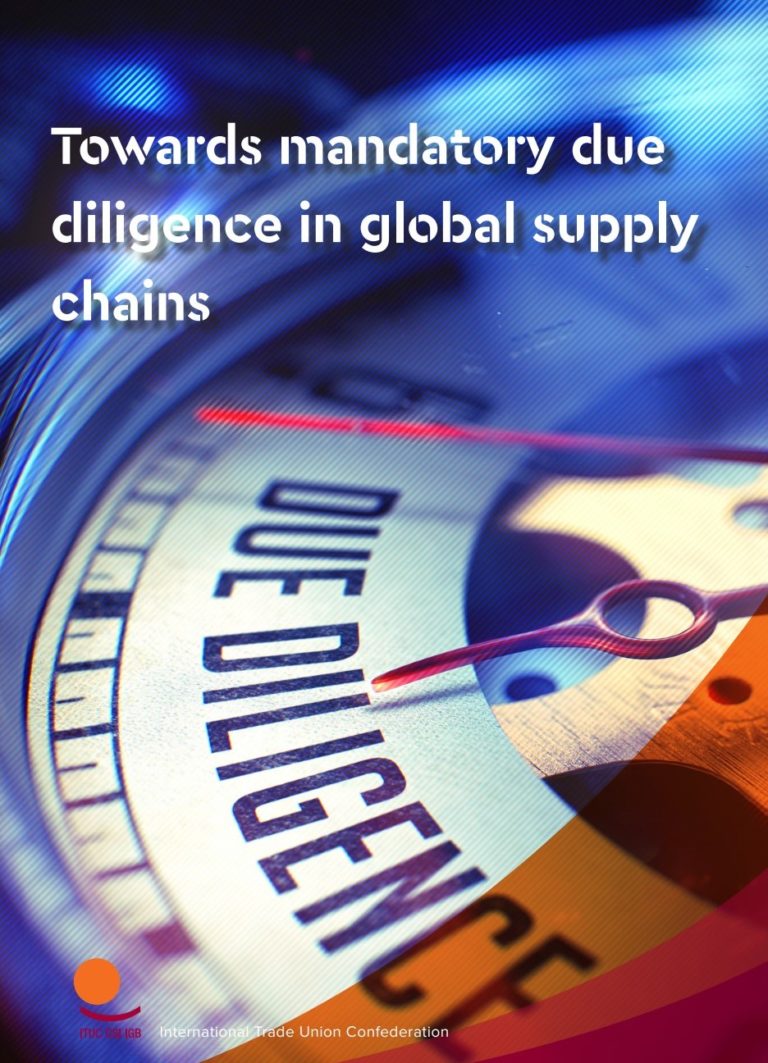The Covid-19 pandemic has once again exposed the fragility of global supply chains and the enormous risks to human and labour rights in a highly interconnected global economy that is not governed by the rule of law.
With the global drop in demand as a result of the pandemic, many companies have resorted to abruptly ending the procurement of goods and services and even to defaulting on prior commitments made – with the consequence of a disastrous impact for workers in global supply chains. In Bangladesh, more than half of the garment suppliers reported that they had their in-process or completed production cancelled, which has led to massive job losses and workers getting furloughed. More than 98.1% of buyers refused to contribute to the cost of paying the partial wages to furloughed workers required under national law. 72.4% of furloughed workers were sent home without pay.
As the economic consequences of the pandemic have spread, years of voluntary corporate social responsibility promises by companies have vanished overnight. In the absence of an appropriate regulatory framework, global companies have been able to evade responsibilities for the workers who produced the goods and provided the services that allowed them to generate enormous profits.
Today, 94% of workers producing goods and providing services to global companies are hidden workers and not directly hired by their economic employer. Instead, the majority of these workers are exposed to precarious working conditions without access to remedy due to an obscure web of a global network of operations and businesses designed to protect companies from accountability.
To ensure that the global economy is not only resilient but also conducive to social progress, governments must now take decisive legislative steps to regulate the behaviour of companies with regard to their entire operations and activities. The introduction of mandatory due diligence in domestic legislation would for the first time give workers a legal framework for redress wherever their employer resides and prevent companies from evading their responsibilities towards not only their workers but also society and the planet. Within multinational groups of companies, the “parent company” would be required to deploy its best efforts to ensure that the subsidiaries comply with certain requirements; and within global supply chains, the “lead company” would be required to ensure that by imposing its conditions on the sub-contracted seller or service-provider, human rights are fully complied with across the whole chain.

